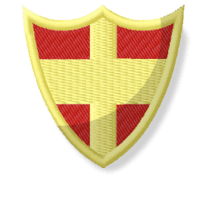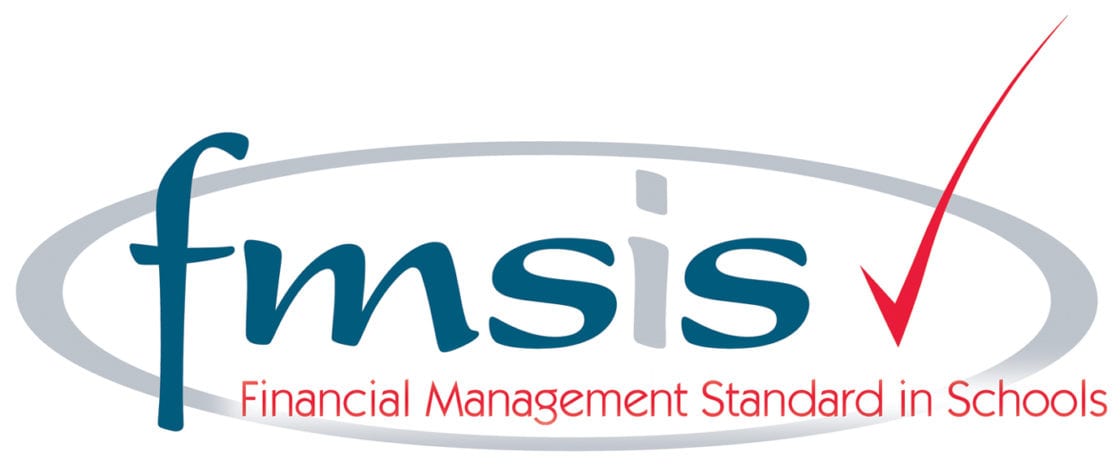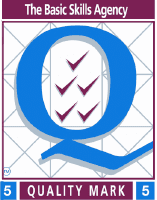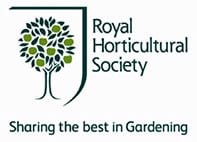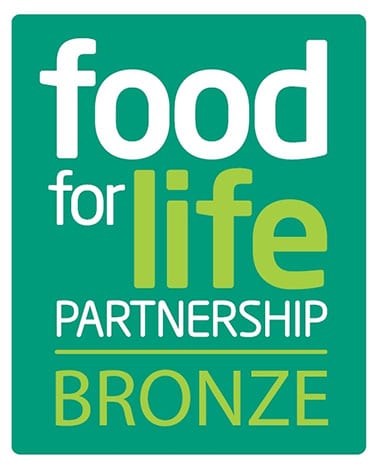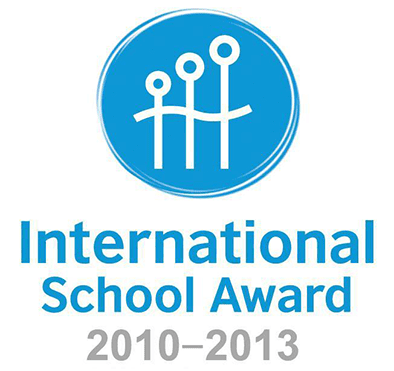Welcome to Class 5
Teacher: Miss Gooding
Year 4 Curriculum
Literacy
Literacy is taught daily. Each week the children work towards a Star Write – an independent piece of writing – where they demonstrate and celebrate their writing skills. The Star Write involves a balance of fiction and non-fiction pieces and is based on a hook such as a picture book, a segment of a novel, an important figure or a cross-curricular topic. At the start of the week, the children read the WAGOLL (What A Good One Looks Like) which is an example of what their work should achieve in their final writing piece. Through the week, the children learn a range of Year Four skills, which they are then expected to apply in their Star Write. Developing an excitement for writing is a key goal whilst also progressing the children’s writing abilities and their stamina for writing. SPAG skills are taught within literacy lessons and key terminology is referred to regularly. Spelling is set as homework each week and the children are tested on their spellings on a weekly basis.
In Year Four, there is a significant emphasis placed on reading for enjoyment. As a whole class, we read a class novel tailored to the interests of the children. Additionally, the children have access to a range of books which cover a range of genres and topics. Each term, the children’s reading is assessed, and they are assigned a reading band to select a book from. The children also can read a range of free read books. Guided reading sessions with the teacher are used frequently so that all of the children have the opportunity to read aloud. Comprehension of texts is a key skill to be developed in Year Four and is taught through VIPERS sessions.
Numeracy
Numeracy is taught daily. There is a strong emphasis placed on developing children’s mental maths skills and multiplication facts. It is important that the children practise their multiplication skills throughout this year to prepare them for the national multiplication test in the summer term. The children are set times tables homework to encourage them to practise tables at home. In this year, the children are taught the standard methods for addition, subtraction, multiplication and division and are encouraged to apply what they have learnt to solve a broad range of problems. The mathematics curriculum topics are taught separately and once taught, are regularly covered in Morning Maths sessions to allow frequent repetition of skills and knowledge. Morning Maths sessions are used to begin each day and aim to recap the children’s knowledge and improve their arithmetic skills.
Religious Education
Religious education is taught according to guidelines from the Diocese using the religious scheme ‘Come and See’. RE is taught three times weekly for approximately 50 mins a lesson. The children are encouraged to make links between scripture and Christian beliefs and practises and develop an understanding of how their beliefs as Christians shape their lives.
Religious education is weaved into the children’s daily learning as the children pray at the beginning and end of each day and again at lunchtime. They plan, prepare and engage with liturgical prayers which link to the statement of belief for the week. The children are encouraged to gather, share the word, respond and then apply their understanding in a mission. The children can reflect on, apply and discuss their RE learning on a daily basis.
Science
Science is taught each week with a new topic being introduced each term using the ‘Developing Experts’ scheme. In Science, we aim for children to see the importance of a scientific understanding in the world around them. The emphasis is on the children developing their knowledge and their ability to plan and conduct scientific investigations effectively to develop their skills when working scientifically.
Foundation Subjects
The foundation subjects are generally taught separately, however where relevant cross curricular links are made with Numeracy, Literacy, Computing and Religious Education.
Music and British Sign Language are taught by specialist teachers, weekly.
History and Geography
History and Geography are taught each term. In Year Four, each term is given a History and Geography topic. This topic then becomes the focus of the whole term. Both subjects receive an equal amount of time and are planned so that the requirements of the national curriculum are addressed. There is an emphasis on cross curricular links between both subjects and literacy, numeracy and computing.
Computing
Computing is taught as a separate subject and skills are developed across all three of the Computing strands: Computer Science, ICT and Online Safety. As the world becomes increasing reliant upon technology, it is our goal to encourage the children to become confident digital citizens who can use technology effectively, easily and safely.
Art
Art is taught each term with a new skill being focused on. At the beginning of each Art topic, a new artist is introduced, and the children are encouraged to research the life and background of this artist. This then inspires their work across the unit to provide ideas and inspiration. Art involves using a range of mediums such as painting, sketching and moulding.
DT
In DT, a new topic is introduced each term. The key areas of focus are mechanisms, structures, cookery and textiles. In DT, all of the topics involve the children following the DT cycle in which they research, investigate and practise, design, create and evaluate.
Physical Education (PE)
Each term a new topic is focused upon within PE. The emphasis is on developing the children’s stamina, physicality and their skills across a range of PE topics. Children are taught skills, tactics and teamwork. A specialist teaches one area of the curriculum for one term.
Cross-curricular orienteering is also used to combine PE with a range of subjects across the curriculum. The children are encouraged to use their map skills to navigate their team around a course which makes use of the school ground. At each check point they answer a cross-curricular question or activity.
RSHE
RSHE is taught each term and links closely with the children’s rights. In these lessons the children are encouraged to discuss and share their understanding of a range of topics whilst linking these lessons to their own rights as well as their religious education understanding.
To view our Curriculum Plans please visit Our Curriculum section.
